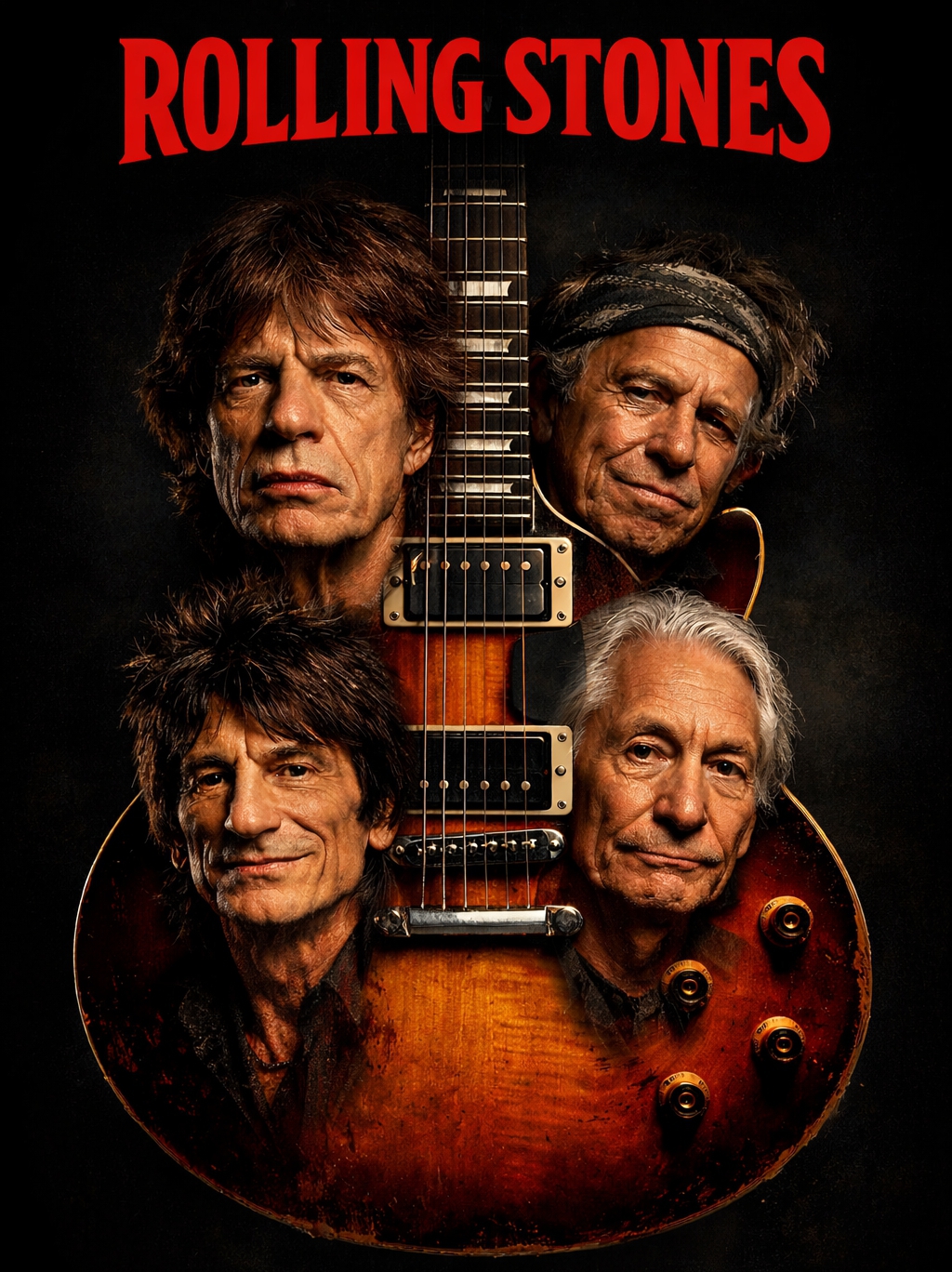The Beatles and The Rolling Stones—two names that have become synonymous with the golden era of British rock—represented more than just music. They were cultural forces, symbols of identity, rebellion, and innovation. Their rivalry, whether entirely real or partly media-inflated, played a crucial role in shaping not only the sound of an era but the very essence of rock music as we know it today.In the early 1960s, The Beatles exploded onto the scene with their clean-cut image, charming harmonies, and infectious pop-rock sound. Their music, though rooted in early rock and roll and skiffle, carried a freshness that quickly captivated the world. Meanwhile, The Rolling Stones emerged with a darker, blues-driven style, rough edges, and a swagger that stood in stark contrast to their Liverpool counterparts. From the beginning, fans and journalists began pitting them against each other—Beatles vs. Stones—a battle of melody versus grit, suits versus leather, charm versus snarl.Yet, beneath the surface of competition was mutual admiration. The Beatles helped The Rolling Stones land their first hit by offering them the song “I Wanna Be Your Man.” In return, The Stones pushed The Beatles to evolve creatively. While the Fab Four experimented with studio wizardry and psychedelic sounds on albums like Revolver and Sgt. Pepper, The Stones countered with raw, stripped-back rockers like Beggars Banquet and Let It Bleed. Each band’s evolution seemed to challenge the other to go further, think differently, and never settle.Their rivalry was also a reflection of the broader cultural shifts happening in Britain and the world. Fans saw The Beatles as the face of optimistic progress—clean and forward-looking—while The Rolling Stones embodied rebellion and raw, unfiltered emotion. These identities were reinforced by the media, which relished the contrasts and used them to build narratives that captured the public imagination.As the 1960s progressed, both bands matured and their musical styles grew more complex. The Beatles embraced introspection and avant-garde influences, while The Stones leaned harder into blues and country-tinged rock. By the time The Beatles disbanded in 1970, The Rolling Stones were poised to dominate the decade with albums like Sticky Fingers and Exile on Main St. The rivalry, in a way, had propelled The Stones forward just as The Beatles left the stage.Looking back, the Beatles-Stones rivalry was never just about competition. It was about creative tension that inspired masterpieces, broadened the boundaries of rock, and gave fans some of the most enduring music of the 20th century. Without each other, it’s hard to say whether either band would have pushed the envelope as far as they did.Today, the debate continues in pubs, on playlists, and across generations. Beatles or Stones? The beauty of it is—because of that rivalry—we never had to choose. We got both, and British rock was never the same.
Related Posts

OFFICIAL ANNOUNCEMENT: As rolling Stone members prepare for a new tour after the cancellation of their first 2026 tour. Full date and city revealed.
The Rolling Stones have officially confirmed that they are returning to the road after the unexpected cancellation of their initial 2026 tour plans, sending a wave of excitement through fans around the world. After months of speculation and concern following the earlier announcement, the legendary band has reassured audiences that the delay was temporary and […]
the symbolism about roses and guns in American culture
In American culture, roses and guns carry rich, often contradictory symbolism that reveals deep truths about national identity, values, and tensions. Together, they represent a complex interplay between beauty and violence, love and power, tenderness and aggression—reflecting the multifaceted nature of the American experience.Roses have long stood as symbols of love, passion, and remembrance. In […]
about bowling Green festival and events, a year-round celebration
Bowling Green Festival and Events: A Year-Round Celebration Nestled in the heart of south-central Kentucky, Bowling Green is more than just a charming city—it’s a hub of culture, community, and celebration. Throughout the year, Bowling Green comes alive with festivals and events that bring locals and visitors together in a vibrant display of music, art, […]